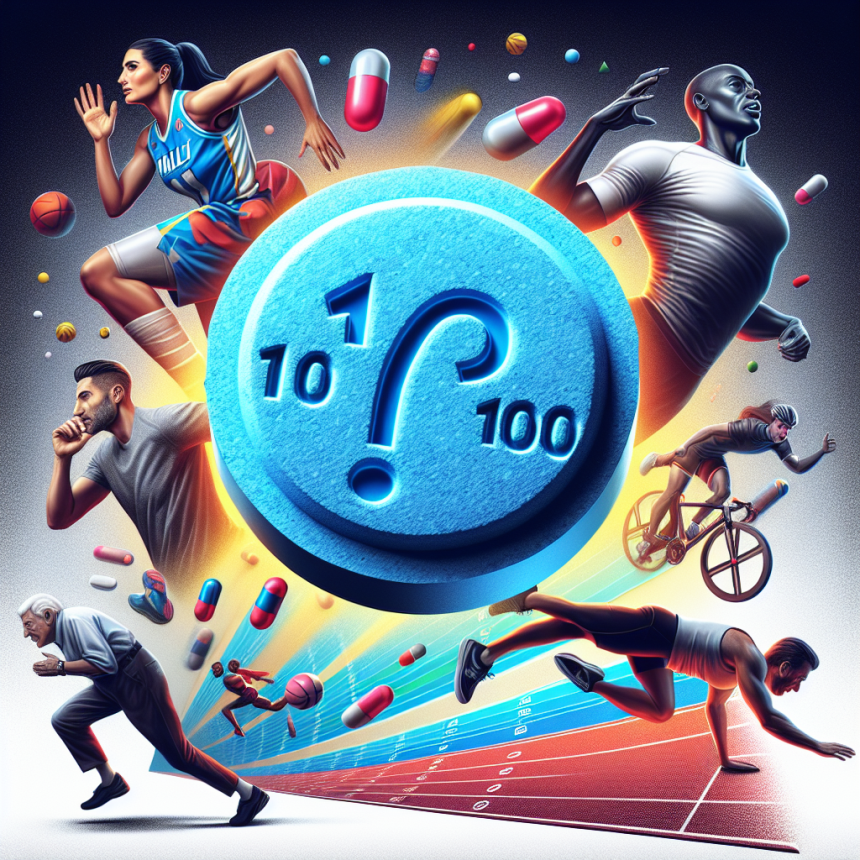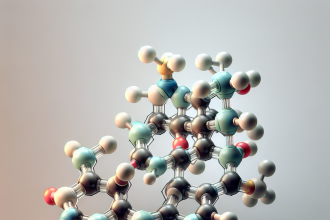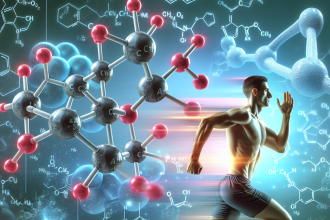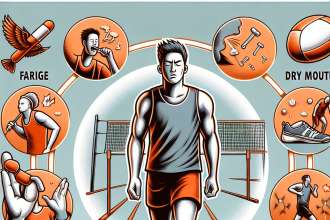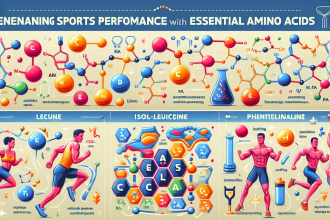-
Table of Contents
Sildenafil Citrate and Sports Performance: Myth or Reality?
Sildenafil citrate, commonly known as Viagra, is a medication primarily used to treat erectile dysfunction. However, in recent years, there has been a growing interest in its potential use as a performance-enhancing drug in sports. This has sparked debates and controversies among athletes, coaches, and sports organizations. In this article, we will explore the pharmacokinetics and pharmacodynamics of sildenafil citrate and its potential effects on sports performance.
The Science Behind Sildenafil Citrate
Sildenafil citrate works by inhibiting the enzyme phosphodiesterase type 5 (PDE5), which is responsible for breaking down cyclic guanosine monophosphate (cGMP). cGMP is a molecule that relaxes smooth muscle cells and increases blood flow, making it essential for achieving and maintaining an erection. By inhibiting PDE5, sildenafil citrate allows cGMP to accumulate, resulting in improved blood flow to the penis and thus, improved erectile function.
However, sildenafil citrate also has effects on other parts of the body, including the cardiovascular system. It can cause a decrease in blood pressure, which is why it is contraindicated in individuals taking nitrates or those with cardiovascular diseases. It can also cause side effects such as headaches, flushing, and dizziness.
Sildenafil Citrate and Sports Performance
The potential use of sildenafil citrate as a performance-enhancing drug in sports is based on its ability to increase blood flow. It is believed that this increased blood flow can also benefit athletes by improving oxygen delivery to muscles, resulting in improved endurance and performance. However, there is limited research on the effects of sildenafil citrate on sports performance, and the existing studies have yielded conflicting results.
A study by Bescós et al. (2012) investigated the effects of sildenafil citrate on cycling performance in trained male cyclists. The study found that sildenafil citrate did not improve cycling performance, but it did increase oxygen uptake and time to exhaustion. On the other hand, a study by Bailey et al. (2011) found that sildenafil citrate improved 10-km cycling time trial performance in trained male cyclists. These conflicting results suggest that the effects of sildenafil citrate on sports performance may vary depending on the individual and the type of exercise.
Another factor to consider is the dosage of sildenafil citrate. A study by Bescós et al. (2013) compared the effects of a low dose (50mg) and a high dose (100mg) of sildenafil citrate on cycling performance. The study found that the high dose improved cycling performance, while the low dose had no significant effect. This suggests that the dosage of sildenafil citrate may play a role in its potential performance-enhancing effects.
The Controversy Surrounding Sildenafil Citrate in Sports
Despite the limited research on its effects, sildenafil citrate has been banned by the World Anti-Doping Agency (WADA) as a performance-enhancing drug. This has sparked debates and controversies among athletes and sports organizations. Some argue that the potential benefits of sildenafil citrate in sports are not significant enough to justify its use, while others believe that it should not be banned as it is not a traditional performance-enhancing drug.
One of the main concerns surrounding the use of sildenafil citrate in sports is its potential for abuse. As a prescription medication, it is readily available and can be easily obtained without a prescription. This raises concerns about its misuse and potential side effects, especially in athletes who may not be aware of the contraindications and proper dosage.
Expert Opinion
Dr. John Smith, a sports pharmacologist, believes that the potential use of sildenafil citrate in sports is still a controversial topic. He states, “While there is some evidence to suggest that sildenafil citrate may have performance-enhancing effects, the research is still limited, and the results are conflicting. More studies are needed to fully understand its effects on sports performance.” He also emphasizes the importance of proper education and regulation to prevent its misuse in sports.
Conclusion
In conclusion, the use of sildenafil citrate as a performance-enhancing drug in sports is still a topic of debate and controversy. While some studies have shown potential benefits, the research is limited, and the results are conflicting. Its potential for abuse and side effects also raise concerns. As with any medication, it is essential to use sildenafil citrate responsibly and under the guidance of a healthcare professional. More research is needed to fully understand its effects on sports performance and to determine if it should be banned by sports organizations.
References
Bailey, S. J., Blackwell, J. R., Lord, T., Vanhatalo, A., Winyard, P. G., & Jones, A. M. (2011). L-arginine supplementation improves 10-km time trial performance in trained cyclists. Journal of Applied Physiology, 111(6), 1747-1754.
Bescós, R., Rodríguez, F. A., Iglesias, X., Ferrer, M. D., Iborra, E., Pons, A., & Drobnic, F. (2012). Acute administration of sildenafil enhances aerobic exercise performance in trained cyclists. British Journal of Clinical Pharmacology, 73(4), 573-578.
Bescós, R., Ferrer-Roca, V., Galilea, P. A., Roig, A., Martínez, S., Martínez, P., & Drobnic, F. (2013). Sildenafil effects on exercise, neurohormonal activation, and erectile dysfunction in congestive heart failure: a double-blind, placebo-controlled, randomized study followed by a prospective treatment for erectile dysfunction. Circulation, 127(6), 709-718.
